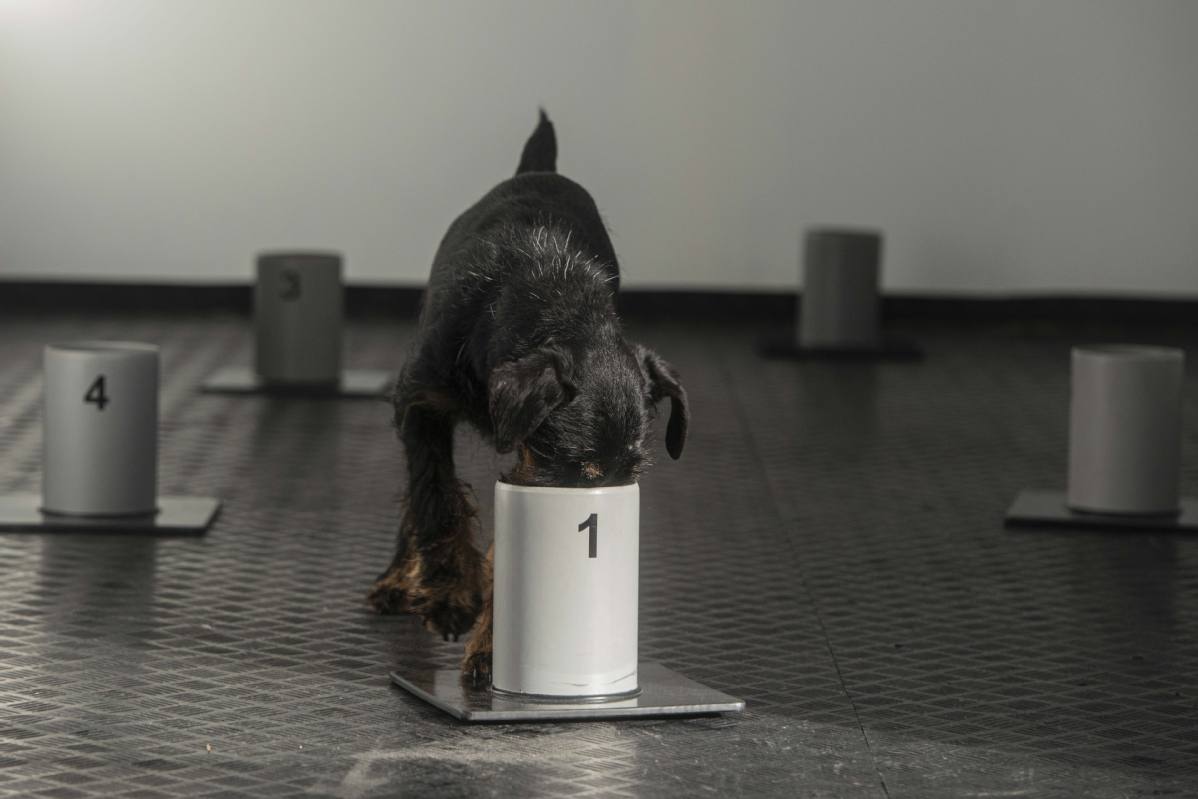A trusty antivirus ally: bring in the dog squad
China Daily | Updated: 2021-01-25 10:42

KLINY, Czech Republic-In a dog training center built inside a shipping container located in a Czech mountain village, Renda, Cap and Laky were being put through their paces.
They sniff at six vessels, each containing a piece of cloth from patients with COVID-19, negative donors, or fake samples.
"Good boy," exclaims Lenka Vlachova, a trainer working at Prague's fire brigade, as jagdterrier Renda sits down by one sample, wagging his tail.
The team of dog trainers is working in their own time and reports a 95 percent success rate in COVID-19 detection in the samples given them.
"The study is designed to verify dogs' ability to detect COVID-19 and generate a method enabling the use of trained dogs in combating the pandemic," project head Gustav Hotovy said. "The method should also work with other diseases even more lethal than COVID-19."
"In the end, we should be able to detect a huge number of people in a very short time with a trained dog," he said in the snowy village of Kliny.
The first study confirming dogs are able to detect tissue attacked by a virus was conducted in the United States about a decade ago, Vlachova said.
"The virus changes the human tissue, affecting the scent signature of the person," she said.
Hotovy, a retired cynologist whose team started training the dogs last August, said the signature changes "so much that it is immediately discernible for the dogs".
Sampling method
The samples used are obtained merely by rubbing a piece of cotton against the patient's skin.
The team then has to ensure the sample is virus-free to prevent the dogs from catching the disease.
Using the same sampling method, a Finnish team has been using dogs for testing at Helsinki airport, claiming their dogs can detect the virus with close to 100 percent accuracy.
Vlachova said the Czechs would like to work together with the Finns or with French and German teams working on similar projects.
Unlike their Western peers, the Czech team works in its free time and relies on the scant financial support provided by a local dog food maker.
Cynologist Katerina Jancarikova said the virus-affected tissue made up "just a tiny fragment in the overall scent, a part of the dogs' puzzle".Jancarikova said any dog can be trained for detection duty as long as it is cooperative.
Agencies via Xinhua
























